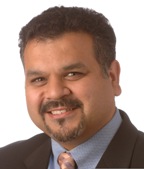Peace and conflict resolution in Islam |
Reducing ideological support for radicalism
Engaging Muslim civil society through a broader conflict resolution framework, and not solely a counterterrorism agenda, will reduce the ideology of radicalism. Terrorism is neither an ideology nor a discrete form of conflict; rather, it is a strategy or tactic of political violence used by actors in a wider context of conflict to achieve political goals. Policymakers and Muslim peacemakers should treat terrorism as a symptom, and not the sole cause, of any conflict. Focusing exclusively on acts of terrorism limits the analysis and understanding of the broader range of issues at work in any given situation.
Using a conflict resolution framework, one can comprehend the broader set of issues, actors, and behaviors involved, as well as the history of a conflict and the grievances that terrorism is tied to - grievances that need long-term political, social, cultural, and economic solutions. To counter ideological support for terrorism, fellow actors within the ideological community must be supported to speak out against radicalism and have continual messages to counteract extremist propaganda. There is a need to focus on citizen-messengers, or those who can affect opinion and attitudes from the bottom up. Opinion makers, scholars, activists, journalists, teachers, parliamentarians, religious leaders, youth leaders, television personalities, entertainers, sports figures, intellectuals, business leaders, philanthropists, and other such citizen-messengers must be employed to spread positive ideas to neutralize extremist ideologies and resist violence.
Peace Education and Curriculum Reform
It is time for a comprehensive Islamic peace education curriculum founded on nonviolence - a nonbiased, human rights–based education. Private and public secondary schools, technical colleges and universities, and seminaries need to institute peace and conflict-resolution studies programs, where students can acquire essential conceptual and theoretical conflict-resolution knowledge. A vigorous peace education curriculum will allow students to study and also practice the art of applying conflict resolution theory to their own lives and communities.
No doubt, much peacebuilding work is needed in predominantly Muslim communities. In addition to expanding the network of peacebuilding work on the ground, we underscore the importance of research by analysts and practitioners and the need to support their efforts to disseminate their work to appropriate policymakers, international peacebuilding organizations, and students of Islamic peacemaking and conflict resolution.
(Concluded)








 Dr Qamar-ul Huda is a Senior Program Officer in the Religion and Peacemaking Program and a scholar of Islam at
Dr Qamar-ul Huda is a Senior Program Officer in the Religion and Peacemaking Program and a scholar of Islam at 
Post new comment